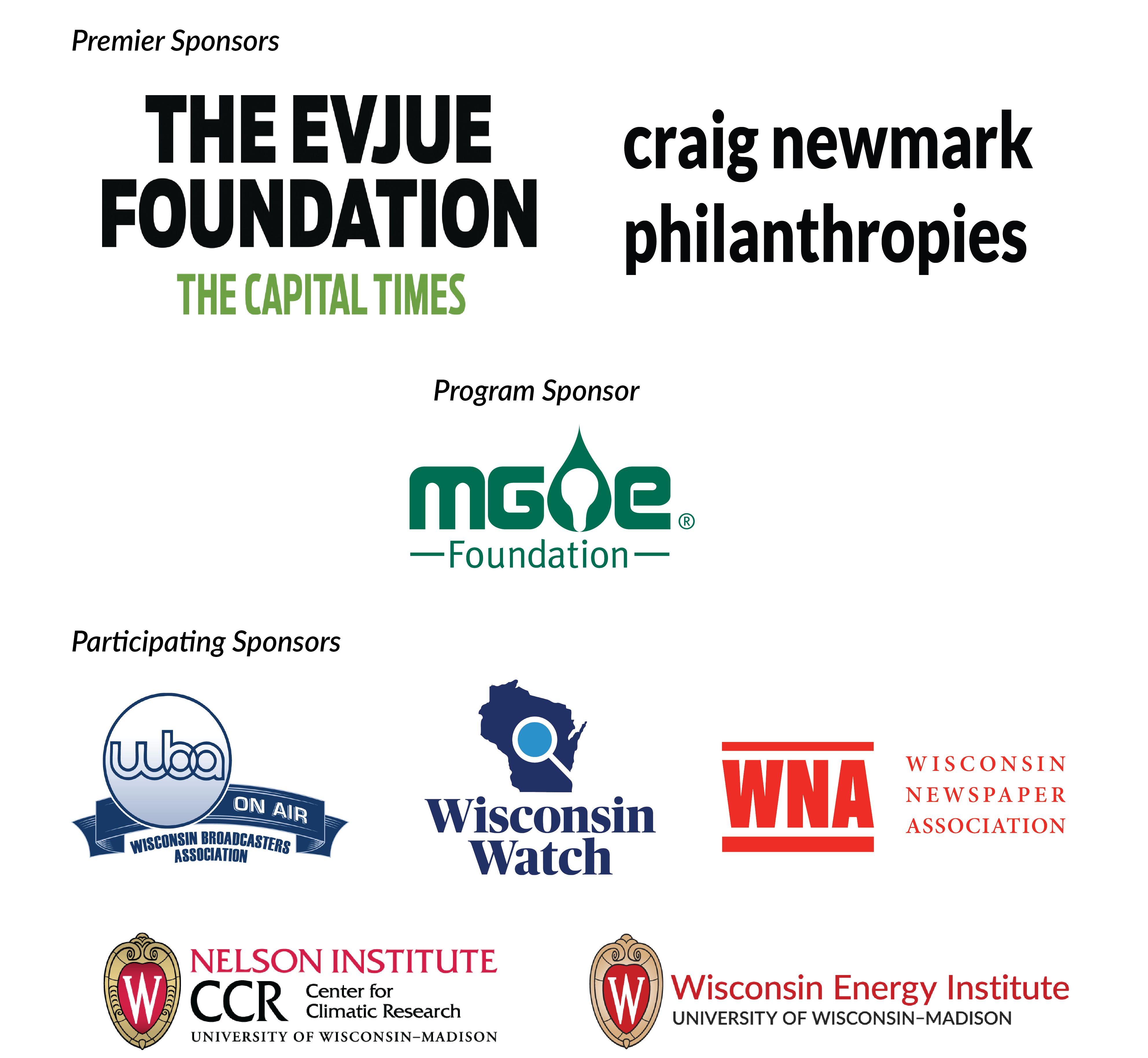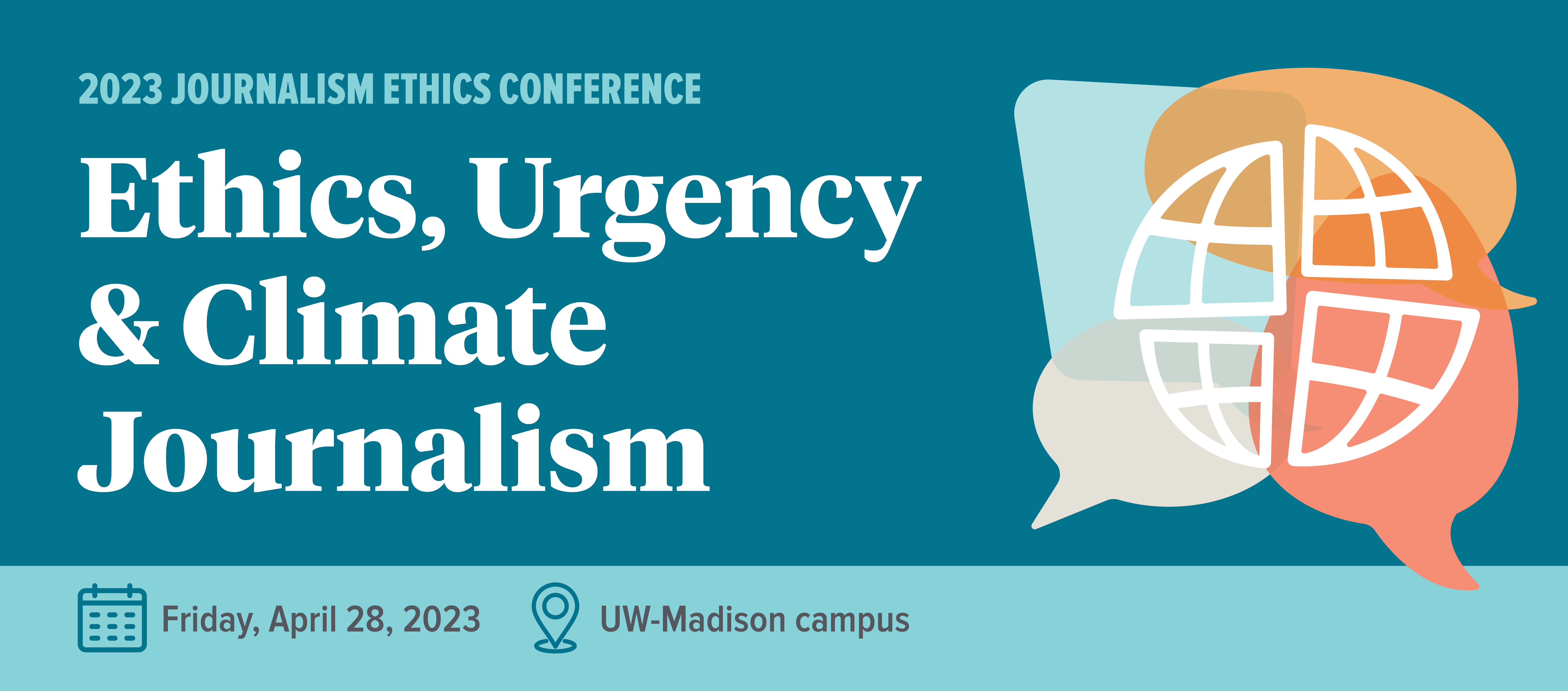
Online and in-person at the Wisconsin Institutes for Discovery,
330 N. Orchard St., Madison, Wis.
PRE-REGISTRATION IS NOW CLOSED. PLEASE REGISTER AT THE DOOR.
Keynote
9:00 AM CT: “Justice and Journalism’s Climate Challenge” BY JUSTIN WORLAND
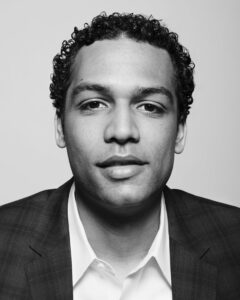
Justin Worland is a Washington D.C.-based senior correspondent for TIME covering climate change and the intersection of policy, politics and society. He has covered the topic since 2015. Previously, he covered health and breaking news for the magazine. In 2022, Worland was named the inaugural Climate Journalist of the Year by Covering Climate Now, a non-profit dedicated to improving climate journalism. He is a founding steering committee member at the Uproot Project, a non-profit organization that works to diversify environmental journalism. He is a graduate of Harvard College, where he studied history.
Panel 1

10:10 AM CT:
WHO IS GETTING HEARD ON CLIMATE?
This panel will address topics such as the disproportionate effect of climate change on marginalized communities and the question of whose voices are getting heard, the role that colonial legacies and racism play in framing the climate change story, as well as how lack of diversity in media might shape current climate change reporting.
- Yessenia Funes, climate director, Atmos
- Justin Worland, climate reporter, TIME
- Moderator: Lindsay Palmer, associate professor, School of Journalism & Mass Communication, University of Wisconsin–Madison
Panel 2

11:10 AM CT:
MEETING THE MOMENT: BREAKING DOWN BARRIERS TO CONVEYING CLIMATE URGENCY
This panel will discuss the organizational structure of traditional media and ask questions about what journalistic practices might prevent the media from meeting the challenge of fully and ethically covering climate change. Can “environment” continue to be a separate desk? Do traditional news value criteria keep climate change from being front and center? What role do media organizations play in maintaining the status quo? Do professional taboos against advocacy affect climate change coverage?
- Mario Ariza, investigative reporter, Floodlight
- Ros Donald, assistant professor in Climate, Environmental Justice, Media, and Communication, American University
- Moderator: Lucas Graves, associate professor in the School of Journalism and Mass Communication, University of Wisconsin–Madison
12 PM CT: LUNCH
12:45 PM CT: SHADID AWARD PRESENTATION
with judging chair Kathryn McGarr
1:00 PM CT: WISCONSIN’s CHANGING CLIMATE: SCRATCHING BENEATH THE SURFACE
with Steve Vavrus, senior scientist at the Nelson Institute for Climactic Research
PANEL 3

1:20 PM CT:
WHERE DO WE GO FROM HERE? PROMISES & POSSIBILITIES.
This conversation will seek to synthesize the issues raised in previous panels with the many ways forward for journalists and other climate change storytellers. What are examples of great work and collaborations already being done? Who are the leaders in cultivating ethical change to the practice of covering climate change? What are the shifts in perspective that are necessary and ongoing?
- Elizabeth Shogren, associate professor, Medill School of Journalism, Media & Integrated Marketing Communications, Northwestern University
- Patty Loew, professor, Medill School of Journalism, Media & Integrated Marketing Communications, Northwestern University; affiliate, Center for Native American & Indigenous Research
- Moderator: Kelly Tyrell, director of media relations and strategic communications, University of Wisconsin–Madison; engagement editor, The Open Notebook
2:10 PM CT: CLOSING REMARKS
PANELISTS AND PARTICIPANTS
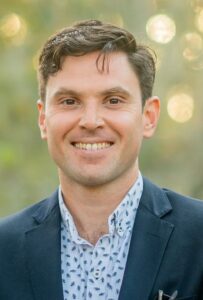 Mario Alejandro Ariza is an investigative reporter and a Dominican immigrant. His byline has appeared in publications such as the South Florida Sun Sentinel, The New Republic, and The Atlantic. Mario wrote a book called Disposable City: Miami’s Future on the Shores of Climate Catastrophe, which was published by Bold Type Books. His essays have been featured in The Believer and selected for Best American Essays. He lives in South Florida with two cats, a dog, and a sturdy pair of waterproof boots.
Mario Alejandro Ariza is an investigative reporter and a Dominican immigrant. His byline has appeared in publications such as the South Florida Sun Sentinel, The New Republic, and The Atlantic. Mario wrote a book called Disposable City: Miami’s Future on the Shores of Climate Catastrophe, which was published by Bold Type Books. His essays have been featured in The Believer and selected for Best American Essays. He lives in South Florida with two cats, a dog, and a sturdy pair of waterproof boots.
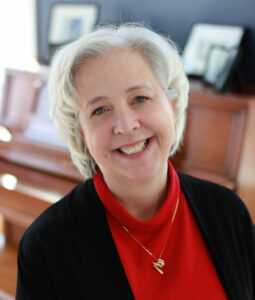 Kathleen Bartzen Culver is the James E. Burgess Chair in Journalism Ethics, an associate professor in the University of Wisconsin-Madison School of Journalism & Mass Communication and director of the Center for Journalism Ethics. Culver is interested in the implications of digital media on journalism and public communication and focuses on the ethical dimensions of social tools, technological advances and networked information. She combines these interests with a background in law and free expression. She also serves as visiting faculty for the Poynter Institute for Media Studies and was the founding editor of PBS MediaShift’s education section.
Kathleen Bartzen Culver is the James E. Burgess Chair in Journalism Ethics, an associate professor in the University of Wisconsin-Madison School of Journalism & Mass Communication and director of the Center for Journalism Ethics. Culver is interested in the implications of digital media on journalism and public communication and focuses on the ethical dimensions of social tools, technological advances and networked information. She combines these interests with a background in law and free expression. She also serves as visiting faculty for the Poynter Institute for Media Studies and was the founding editor of PBS MediaShift’s education section.
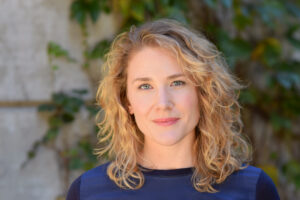 Ros Donald is an assistant professor of Climate, Environmental Justice, Media, and Communication at American University. She researches how climate change communication can be made more just and effective, combining archival research, interviews, and document analysis to weave together the connections between histories of environmental injustice and today’s climate debate. She holds a doctorate in communications from Columbia University and was a postdoctoral associate at the University of Miami’s Rosenstiel School of Marine and Atmospheric Science. She has shared her findings with stakeholders ranging from local governments to large businesses. Before she began her doctoral work, she was deputy editor of Carbon Brief, a climate science and policy website, where she specialized in climate communication and disinformation.
Ros Donald is an assistant professor of Climate, Environmental Justice, Media, and Communication at American University. She researches how climate change communication can be made more just and effective, combining archival research, interviews, and document analysis to weave together the connections between histories of environmental injustice and today’s climate debate. She holds a doctorate in communications from Columbia University and was a postdoctoral associate at the University of Miami’s Rosenstiel School of Marine and Atmospheric Science. She has shared her findings with stakeholders ranging from local governments to large businesses. Before she began her doctoral work, she was deputy editor of Carbon Brief, a climate science and policy website, where she specialized in climate communication and disinformation.
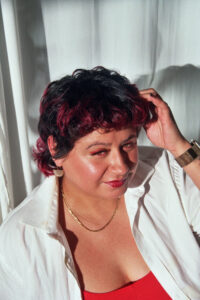 Yessenia Funes is an environmental journalist currently serving as climate director for Atmos, an independent nonprofit climate and culture magazine and news site. Atmos prides itself on taking an emotional and visually led approach to telling climate stories that matter. There, Yessenia publishes The Frontline, an environmental and climate justice newsletter on activism, science, policy, and solutions. She has also written for Vogue, Cosmopolitan, The Guardian, HuffPost, and more.
Yessenia Funes is an environmental journalist currently serving as climate director for Atmos, an independent nonprofit climate and culture magazine and news site. Atmos prides itself on taking an emotional and visually led approach to telling climate stories that matter. There, Yessenia publishes The Frontline, an environmental and climate justice newsletter on activism, science, policy, and solutions. She has also written for Vogue, Cosmopolitan, The Guardian, HuffPost, and more.
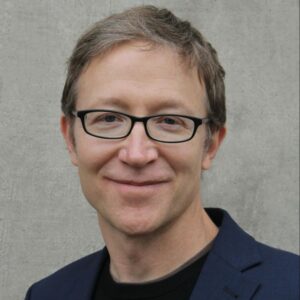 Lucas Graves is an associate professor in the School of Journalism and Mass Communication at the University of Wisconsin–Madison. His research focuses on new organizations and practices in the emerging news ecosystem, and more broadly on the challenges digital networks pose to established media and political institutions. His book Deciding What’s True: The Rise of Political Fact-Checking in American Journalism came out in 2016 from Columbia University Press. Graves writes and speaks widely on topics relating to the news, politics, and new media, including political fact-checking, annotative journalism, net neutrality, and the open-source movement. His work has appeared in the New York Times, the Columbia Journalism Review and the Nieman Journalism Lab at Harvard University, as well as numerous scholarly journals
Lucas Graves is an associate professor in the School of Journalism and Mass Communication at the University of Wisconsin–Madison. His research focuses on new organizations and practices in the emerging news ecosystem, and more broadly on the challenges digital networks pose to established media and political institutions. His book Deciding What’s True: The Rise of Political Fact-Checking in American Journalism came out in 2016 from Columbia University Press. Graves writes and speaks widely on topics relating to the news, politics, and new media, including political fact-checking, annotative journalism, net neutrality, and the open-source movement. His work has appeared in the New York Times, the Columbia Journalism Review and the Nieman Journalism Lab at Harvard University, as well as numerous scholarly journals
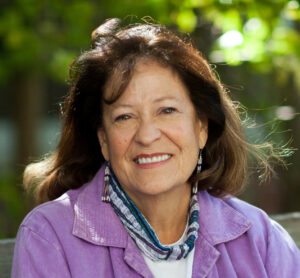 Patty Loew, Ph.D., is a professor in the Medill School of Journalism and former director of the Center for Native American and Indigenous Research at Northwestern University. A citizen of Mashkiiziibii, the Bad River Band of Lake Superior Ojibwe, Loew is the author of four books, including “Indian Nations of Wisconsin: Histories of Endurance and Renewal,” now in its second edition; “Native People of Wisconsin,” which is used by 20,000 Wisconsin school children as a social studies text; and “Teachers Guide to Native People of Wisconsin.” Her book, “Seventh Generation Earth Ethics,” won the 2014 Midwest Book Award for Culture. Loew has produced many documentaries for public and commercial television, including the award-winning “Way of the Warrior,” which aired nationally on PBS in 2007 and 2011. For 20 years, she hosted news and public affairs programs, including WeekEnd and In Wisconsin, for PBS Wisconsin and is professor emerita at UW-Extension. A 2019 inductee of the American Academy of Arts and Sciences and recipient of Wisconsin’s 2019 Martin Luther King Jr. Heritage Award, Loew has written extensively about Ojibwe treaty rights, sovereignty and the role of Native media in communicating Indigenous world views.
Patty Loew, Ph.D., is a professor in the Medill School of Journalism and former director of the Center for Native American and Indigenous Research at Northwestern University. A citizen of Mashkiiziibii, the Bad River Band of Lake Superior Ojibwe, Loew is the author of four books, including “Indian Nations of Wisconsin: Histories of Endurance and Renewal,” now in its second edition; “Native People of Wisconsin,” which is used by 20,000 Wisconsin school children as a social studies text; and “Teachers Guide to Native People of Wisconsin.” Her book, “Seventh Generation Earth Ethics,” won the 2014 Midwest Book Award for Culture. Loew has produced many documentaries for public and commercial television, including the award-winning “Way of the Warrior,” which aired nationally on PBS in 2007 and 2011. For 20 years, she hosted news and public affairs programs, including WeekEnd and In Wisconsin, for PBS Wisconsin and is professor emerita at UW-Extension. A 2019 inductee of the American Academy of Arts and Sciences and recipient of Wisconsin’s 2019 Martin Luther King Jr. Heritage Award, Loew has written extensively about Ojibwe treaty rights, sovereignty and the role of Native media in communicating Indigenous world views.
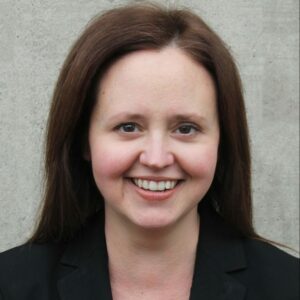 Lindsay Palmer is an associate professor in the School of Journalism and Mass Communication at the University of Wisconsin–Madison. She studies global media from a qualitative perspective, especially focusing on two primary questions: 1) What challenges inform the labor of international news reporting and documentary production in the digital age, and 2) how do international news reports and documentaries represent cultural difference, particularly when addressing human rights violations? These questions have led Palmer to pursue research on digital war reporting, local translators and guides, and virtual reality news stories that focus on international human rights issues. Palmer’s first book is called Becoming the Story: War Correspondents since 9/11 (University of Illinois Press 2018). Her second book is called The Fixers: Local News Workers and the Underground Labor of International Reporting (Oxford University Press 2019). Palmer is currently working on two new book projects: one of these conducts a cultural history of the Committee to Protect Journalists. The other looks at gender and press freedom in the digital age.
Lindsay Palmer is an associate professor in the School of Journalism and Mass Communication at the University of Wisconsin–Madison. She studies global media from a qualitative perspective, especially focusing on two primary questions: 1) What challenges inform the labor of international news reporting and documentary production in the digital age, and 2) how do international news reports and documentaries represent cultural difference, particularly when addressing human rights violations? These questions have led Palmer to pursue research on digital war reporting, local translators and guides, and virtual reality news stories that focus on international human rights issues. Palmer’s first book is called Becoming the Story: War Correspondents since 9/11 (University of Illinois Press 2018). Her second book is called The Fixers: Local News Workers and the Underground Labor of International Reporting (Oxford University Press 2019). Palmer is currently working on two new book projects: one of these conducts a cultural history of the Committee to Protect Journalists. The other looks at gender and press freedom in the digital age.
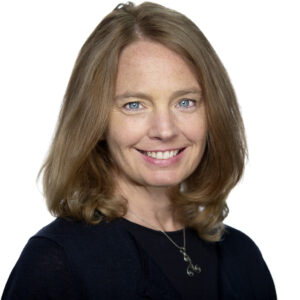
Associate Professor Elizabeth Shogren leads Northwestern University’s Medill School of Journalism graduate program in politics, policy and foreign affairs. Until 2022, she was a senior reporter and producer for Reveal from The Center for Investigative Reporting, focusing on climate change. She still reports for Reveal and other outlets. From 2005 to 2014, Shogren was an on-air environment correspondent for NPR.
Early in her career, she was a Moscow-based freelance reporter, before joining the Los Angeles Times’ Moscow bureau. She covered the White House, Congress, poverty and the environment for the LA Times. She was also the Washington Correspondent for High Country News.
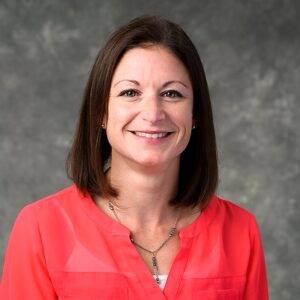 Kelly Tyrrell regularly works with journalists and climate scientists in her role as director of media relations and strategic communications at the University of Wisconsin–Madison. She trained in zoology and molecular biology and became a journalist after serving as a AAAS Mass Media Fellow at the Chicago Tribune in 2011. As a reporter, she covered everything from efforts to restore an endangered butterfly species on remnant prairie to the implications of the Affordable Care Act in its earliest days. Today, she helps connect reporters with sources and public information, oversees a team of science writers in University Communications and also serves as engagement editor for the journalism non-profit, The Open Notebook.
Kelly Tyrrell regularly works with journalists and climate scientists in her role as director of media relations and strategic communications at the University of Wisconsin–Madison. She trained in zoology and molecular biology and became a journalist after serving as a AAAS Mass Media Fellow at the Chicago Tribune in 2011. As a reporter, she covered everything from efforts to restore an endangered butterfly species on remnant prairie to the implications of the Affordable Care Act in its earliest days. Today, she helps connect reporters with sources and public information, oversees a team of science writers in University Communications and also serves as engagement editor for the journalism non-profit, The Open Notebook.
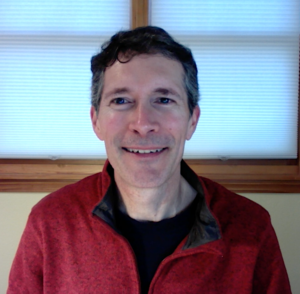 Steve Vavrus is a senior scientist in the Nelson Institute Center for Climatic Research at UW-Madison. He is an expert on Wisconsin climatology, extreme weather, global climate change, and Arctic climate. Most of his research involves computer climate models, which provide quantitative estimates of changes in Earth’s climate in the past (paleoclimate) and future. Steve serves as director of the State Climatology Office and co-director of the Wisconsin Initiative on Climate Change Impacts (WICCI), where he is a member of the Climate Working Group. He also serves as assistant director of the Nelson Institute Center for Climatic Research and is the former chair of the American Meteorological Society’s Polar Meteorology and Oceanography Committee. Steve earned a master’s degree and doctorate in atmospheric sciences from the University of Wisconsin–Madison and received a bachelor’s degree in meteorology from Purdue University.
Steve Vavrus is a senior scientist in the Nelson Institute Center for Climatic Research at UW-Madison. He is an expert on Wisconsin climatology, extreme weather, global climate change, and Arctic climate. Most of his research involves computer climate models, which provide quantitative estimates of changes in Earth’s climate in the past (paleoclimate) and future. Steve serves as director of the State Climatology Office and co-director of the Wisconsin Initiative on Climate Change Impacts (WICCI), where he is a member of the Climate Working Group. He also serves as assistant director of the Nelson Institute Center for Climatic Research and is the former chair of the American Meteorological Society’s Polar Meteorology and Oceanography Committee. Steve earned a master’s degree and doctorate in atmospheric sciences from the University of Wisconsin–Madison and received a bachelor’s degree in meteorology from Purdue University.
 Justin Worland is a Washington D.C.-based senior correspondent for TIME covering climate change and the intersection of policy, politics and society. He has covered the topic since 2015. Previously, he covered health and breaking news for the magazine. In 2022, Worland was named the inaugural Climate Journalist of the Year by Covering Climate Now, a non-profit dedicated to improving climate journalism. He is a founding steering committee member at the Uproot Project, a non-profit organization that works to diversify environmental journalism. He is a graduate of Harvard College, where he studied history.
Justin Worland is a Washington D.C.-based senior correspondent for TIME covering climate change and the intersection of policy, politics and society. He has covered the topic since 2015. Previously, he covered health and breaking news for the magazine. In 2022, Worland was named the inaugural Climate Journalist of the Year by Covering Climate Now, a non-profit dedicated to improving climate journalism. He is a founding steering committee member at the Uproot Project, a non-profit organization that works to diversify environmental journalism. He is a graduate of Harvard College, where he studied history.
THANK YOU TO OUR SPONSORS
